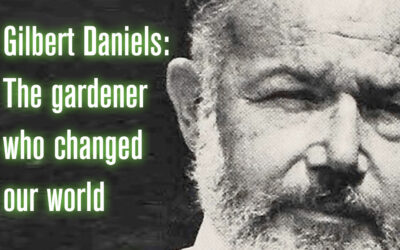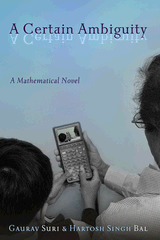I guess once the bug bites, it never really lets go. So here’s another poem (to follow this and this and this). As it turns out this is my second poem on the Goldbach Conjecture. I realized after I had written the first one that I had actually messed up the history a little bit. As it turns out the conjecture that Goldbach had written in his letter to Euler was different from the one connected with his name today. In fact, the one we know today as Goldbach’s conjecture was actually developed by Euler. As this article [pdf] on the American Mathematical Association website states,
I was intrigued by the fact that even though the the final form of the conjecture was developed by Euler, the more famous mathematician, it is known as Goldbach’s conjecture. This poem below is my attempt to have some fun with this.

The Goldbach Variations
A Prussian by the name of Christian Goldbach
As a mathematician no mean hack
Once noticed in numbers a hidden structure
Which he set out as a conjecture
That every number in the number zoo
As long as it was larger than 2
Could be expressed as the sum
Of three primes, wasn’t that rum?
Not having a proof, he thought it better
To write it up and send it to the great Euler, in a letter
Euler took what Goldbach had wrought
Played with it, making it elegant and taut
By suggesting that one should see
Every even as the sum of two primes not three!
Adding the caveat that this was true
of all even numbers greater than 2.
It is of course no surprise
That a question should arise
Should the one who first saw
A version of this numerical law
(That would be Goldbach whose song
Turned out, in essence to be wrong)
Should he be the one to receive the credit
Or should it be the one who did the final edit.
Euler was more famous, the deck was stacked
in his favour, rather than lesser known Goldbach
Would this be the conjecture of Euler
Of Goldbach’s name would he be the spoiler
But as it happens the workings of history
Often remains, to us mere mortals, a mystery
History does not really care
If the attribution is truly fair
Thus it is surprising to anyone who looks
In most standard textbooks
Or sits in mathematical lectures
On hitherto unproven mathematical conjectures
That Euler today receives none of the credit
Though, clearly one can say that he did it.
The idiosyncrasies of life and citation you can blame
For this becoming Goldbach’s significant claim to fame.
About history and credit you may quaff
It was Goldbach who had the last laugh.
More so since this conjecture has remained just that
A conjecture! Unproven, which is nothing to scoff at.


 A Certain Ambiguity: A Mathematical Novel is a book written by two of my high school friends, Gaurav Suri and Hartosh Singh Bal.
A Certain Ambiguity: A Mathematical Novel is a book written by two of my high school friends, Gaurav Suri and Hartosh Singh Bal.
0 Comments
Trackbacks/Pingbacks